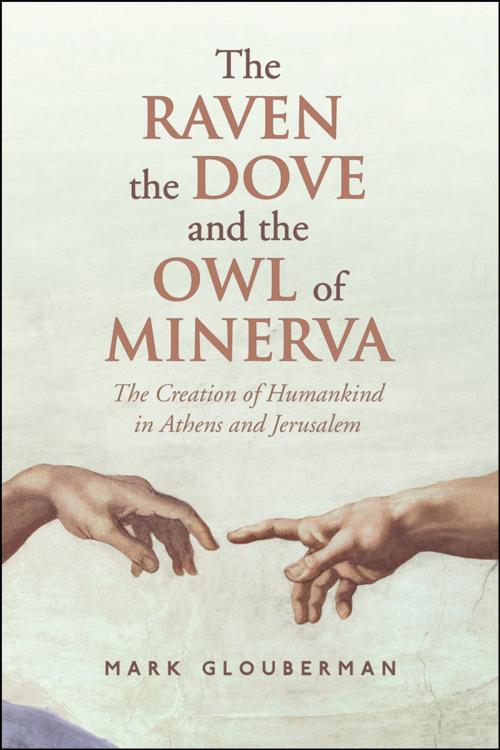The Raven, the Dove, and the Owl of Minerva
The Creation of Humankind in Athens and Jerusalem
Nonfiction, Religion & Spirituality, Philosophy, Ancient, Bible & Bible Studies, Criticism & Interpretation, History, Ancient History| Author: | Mark Glouberman | ISBN: | 9781442660588 |
| Publisher: | University of Toronto Press, Scholarly Publishing Division | Publication: | October 26, 2012 |
| Imprint: | Language: | English |
| Author: | Mark Glouberman |
| ISBN: | 9781442660588 |
| Publisher: | University of Toronto Press, Scholarly Publishing Division |
| Publication: | October 26, 2012 |
| Imprint: | |
| Language: | English |
Through a close textual analysis and a contrastive examination of documents from both cultures, Mark Glouberman explores the biblical roots of our Western sense of self-identity and the ways in which non-philosophical Greek materials enhance our understanding of how that cultural view developed.
Glouberman illustrates how the Hebrew Scriptures advance a humanist rather than a religious view of human nature. He then shows that this same view is germinally present in non-philosophical writings of archaic and classical Greece. Finally, Glouberman argues that the philosophical style of thinking, the intellectual basis of Greece’s contribution to the West, is in fact hostile to what the Bible teaches about human nature, and that central Hellenic figures from outside the philosophical mainstream – notably Homer and Sophocles – are ‘biblical’ in orientation. Each of Glouberman’s theses lends new depth to contemporary research on the Bible as a source of material that illuminates the human condition.
Through a close textual analysis and a contrastive examination of documents from both cultures, Mark Glouberman explores the biblical roots of our Western sense of self-identity and the ways in which non-philosophical Greek materials enhance our understanding of how that cultural view developed.
Glouberman illustrates how the Hebrew Scriptures advance a humanist rather than a religious view of human nature. He then shows that this same view is germinally present in non-philosophical writings of archaic and classical Greece. Finally, Glouberman argues that the philosophical style of thinking, the intellectual basis of Greece’s contribution to the West, is in fact hostile to what the Bible teaches about human nature, and that central Hellenic figures from outside the philosophical mainstream – notably Homer and Sophocles – are ‘biblical’ in orientation. Each of Glouberman’s theses lends new depth to contemporary research on the Bible as a source of material that illuminates the human condition.















